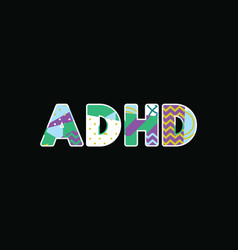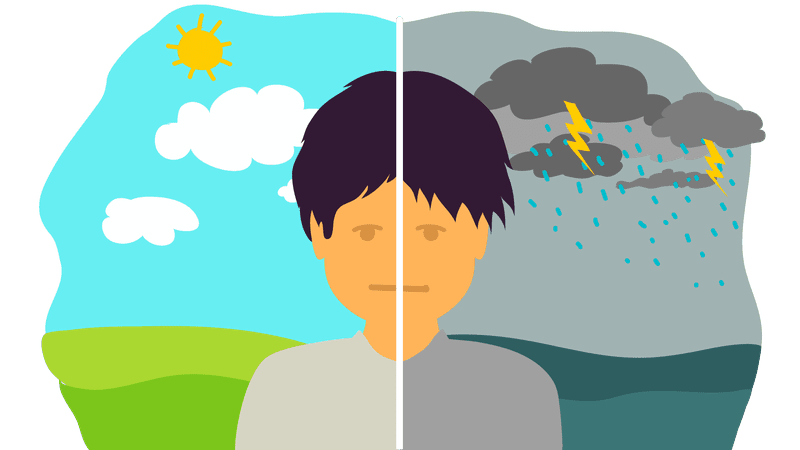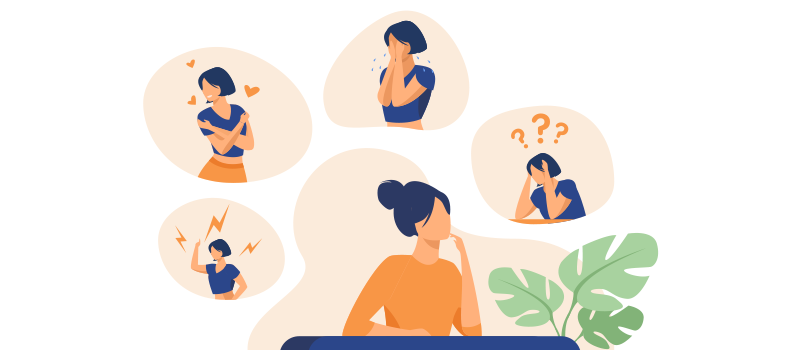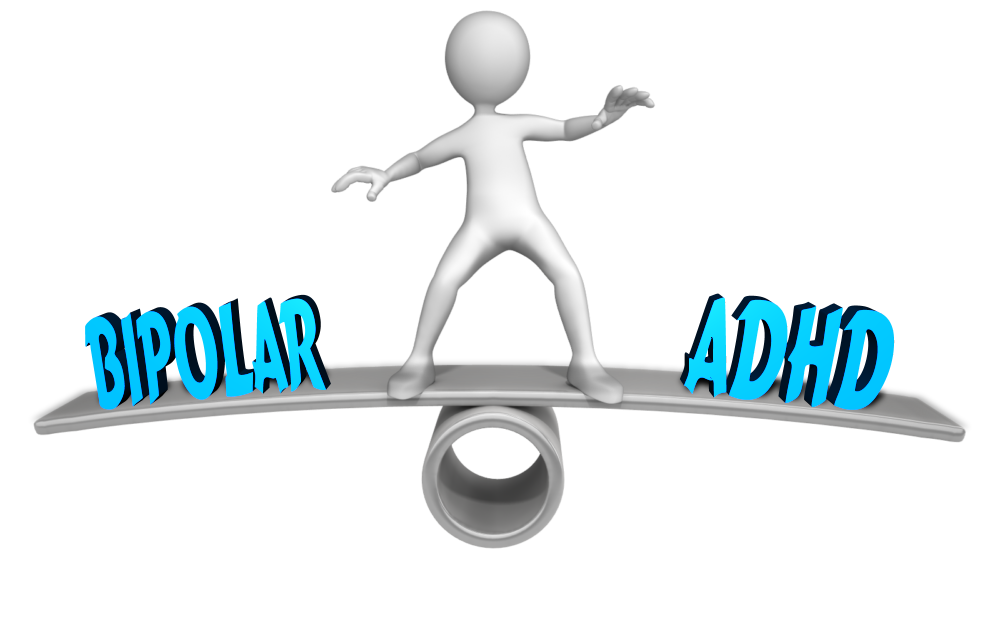Attention Deficit Hyperactivity Disorder (ADHD) and bipolar disorder are both mental disorders that share some common features. In this article, we will discuss the relationship between ADHD and bipolar disorder in detail and explore what you can do to better understand and manage your condition.
Contents
What is ADHD?

ADHD stands for Attention Deficit Hyperactivity Disorder. It is a disorder that affects how a person responds to and experiences stimuli around them. This can make it difficult for the person to pay attention, stay focused, and control their behavior.
There are three types of ADHD: inattentive, hyperactive-impulsive, and combined. The inattentive type typically has problems with paying attention, organizing tasks, and completing tasks on time. The hyperactive-impulsive type often has trouble remaining still and may be very active and restless. The combined type is a combination of the two.
ADHD is a disorder that can affect all areas of a person’s life. It can make it difficult for a person to focus and pay attention, which can lead to problems in school, at work, and with relationships. ADHD can also cause physical symptoms such as trouble staying still, being restless, and having trouble sleeping.
What Is Bipolar Disorder?
Bipolar disorder is a mental illness that is characterized by a pattern of extreme mood swings. People with bipolar disorder may experience episodes of mania, in which they are often very energetic and have an inflated sense of their worth, and episodes of depression, in which they may feel hopeless and hopelessly sad.
Sometimes there may be many reasons for any mood swings a person with bipolar disorder experiences. Sometimes there is no clear trigger, and the mood swings may occur for no reason at all.
Bipolar disorder is a serious mental illness that can cause significant problems in a person’s life. It is important to get help if you are struggling with bipolar disorder. There are many treatments available that can help you manage your symptoms.
Relationship Between ADHD and Bipolar Disorder

ADHD and bipolar disorder are both disorders that can be difficult to understand and treat. However, a relationship between these disorders does exist, and treatment for both ADHD and bipolar disorder can be improved when the two disorders are treated together.
There is a strong correlation between ADHD and bipolar disorder. The symptoms of each disorder can overlap, making it difficult to identify which condition a person has. In addition, people with ADHD are more likely to have a mood disorder such as bipolar disorder. The cause of this relationship is not known, but it is thought that genetics may play a role.
People with ADHD typically have problems with attention, impulsivity, hyperactivity, and inactivity. These problems can also lead to problems with schoolwork and socializing. People with bipolar disorder often have episodes of mania or depression. Mania is an elevated mood that is characterized by increased energy, activity, talkativeness, risk-taking behaviors, and thoughts about becoming famous or wealthy. Depression is a low mood that is marked by feelings of sadness, hopelessness, lack of interest in activities once enjoyed, loss of appetite or sleep, and decreased physical activity.
Another similarity can be found in the way people with ADHD and bipolar disorder cope with stress. People with ADHD tend to have difficulty focusing and paying attention, which can make it difficult to manage stress. People with bipolar disorder also often experience episodes of mania or depression when they are under stress. In addition, people with ADHD are more likely to have problems with substance abuse than people without bipolar disorder.
Treatment for both ADHD and bipolar disorder can be improved when the two disorders are treated together. Also, Treatment for ADHD may include medication and behavioral therapy. Treatment for bipolar disorder may include medication, counseling, and therapy.
Causes of ADHD and Bipolar Disorder
ADHD is a brain disorder that affects the way a person thinks, feels, and behaves. It is most common in children and young adults, but it can also occur in adults. Bipolar disorder is a mental illness that includes episodes of extreme happiness or sadness, and changes in mood, energy, activity, and thoughts. It usually has many factors in adulthood, but it can also start at any age.
Many factors can cause ADHD and bipolar disorder. Genetics may play a role in whether someone gets these disorders. Some people with ADHD have a family history of the condition. Other factors that may contribute to both ADHD and bipolar disorder include:
Traumatic Experiences
One of the most common reasons for ‘early onset’ bipolar disorder is childhood abuse. These traumatic experiences are generally not well-remembered and can have lasting negative effects on the development of the brain.
Environmental Factors
Some people with ADHD or bipolar disorder may be more likely to experience environmental stressors, such as having a chaotic home life or being raised in an unstable environment.
Brain Chemistry
ADHD and bipolar disorder are both associated with changes in brain chemistry. For example, people with ADHD may have lower levels of dopamine in their brains. Dopamine is a neurotransmitter that helps control the brain’s reward and pleasure centers. Low levels of dopamine can lead to problems with focus, motivation, and attention. People with bipolar disorder may also have high levels of serotonin and other neurotransmitters in their brains. Serotonin is a chemical that helps control moods and emotions. High levels of serotonin can lead to problems with sleep, appetite, weight loss, and other symptoms of depression.
Brain Injuries
SometimesADHD and bipolar disorder can be caused by brain injuries. For example, a head injury that occurs in childhood may lead to ADHD. In addition, some people with bipolar disorder may have episodes of mania after a head injury.
Substance Abuse
Also, Substance Abuse and Mental Illness – A Comprehensive Guide (2nd Edition) (2009) states that people with ADHD are more likely than other adults to abuse drugs and alcohol. This is likely because people with ADHD often have problems paying attention, staying on task, and following instructions. Addictive substances can also increase levels of dopamine and serotonin in the brain, which can lead to the same symptoms as ADHD or bipolar disorder.
Life Stressors
Sometimes there are life Stressors that are related to ADHD, such as being unable to hold a job or finish school and then struggling financially. These stressful life events can cause physical and emotional stress in people with ADHD, which can lead to the development of the bipolar disorder.
Treatment Options for ADHD and Bipolar Disorder

There are many treatment options for ADHD and bipolar disorder, depending on the severity of the condition. Some people may need medication to control their symptoms, while others may need therapy or counseling to help them manage their symptoms. There are also a variety of treatments available that focus on changing the underlying causes of the disorder.
Some of these treatment methods for ADHD and bipolar disorder are;
Medications
One of the most common treatment methods for ADHD and bipolar disorder is medication. There are many different types of medications that can be used to control symptoms, but each person will respond differently to different medications. It is important to talk with a doctor about the best medication for you.
Therapy
Many people find therapy to be very helpful when it comes to managing their ADHD and bipolar disorder. Therapists can help you learn how to better manage your symptoms, deal with stress, and understand your thoughts and feelings.
Counseling
Counseling can also be very helpful in managing ADHD and bipolar disorder. Counselors can teach you coping skills, how to manage your stress, and how to develop better relationships. This counseling can also help manage long-term conditions.
Self-Care
Another important part of managing ADHD and bipolar disorder is self-care. This means taking care of yourself both mentally and physically. It is important to eat a balanced diet, get enough sleep, and exercise regularly to stay healthy.
Conclusion
Attention deficit/hyperactivity disorder (ADHD) and bipolar disorder are serious mental illnesses that often go undiagnosed and untreated. If you or someone you know is struggling with ADHD or bipolar disorder, it’s important to seek help as soon as possible. There are many causes of ADHD and bipolar Disorder, but the most common ones include genetics, brain injury, and environmental factors. If left untreated, these conditions can lead to a lifetime of struggles on both personal and professional levels.
If you’re concerned about someone you know who may be struggling with ADHD or bipolar disorder, talk to them about their symptoms and see if there is anything you can do to support them. Sometimes all it takes is for somebody affected by these disorders to feel understood and accepted to start treatment on the road to recovery.
Hope this article was of help to you! If you are suffering from mental health disorders, you may seek help from Therapy Mantra. We have a team of highly trained and experienced therapists who can provide you with the tools and skills necessary for overcoming mental health disorders. Contact us today to schedule an online therapy or download our free Android or iOS app for more information.


